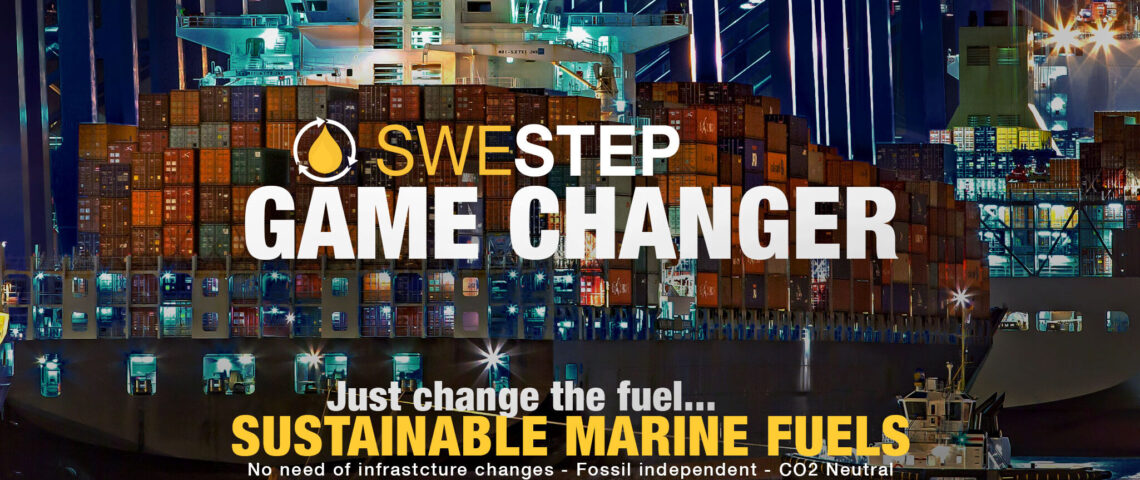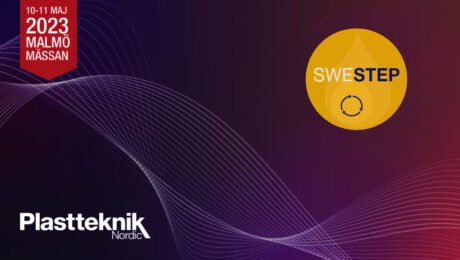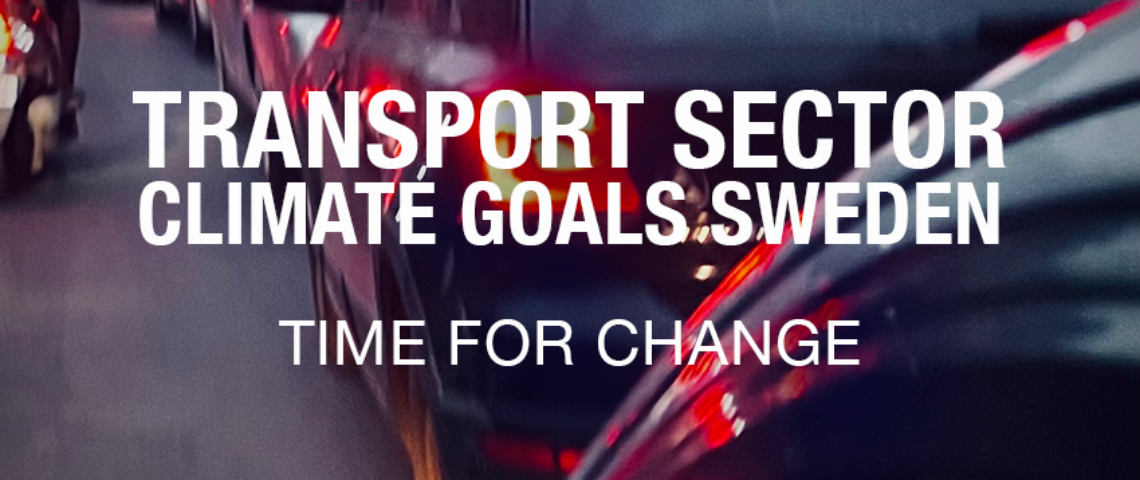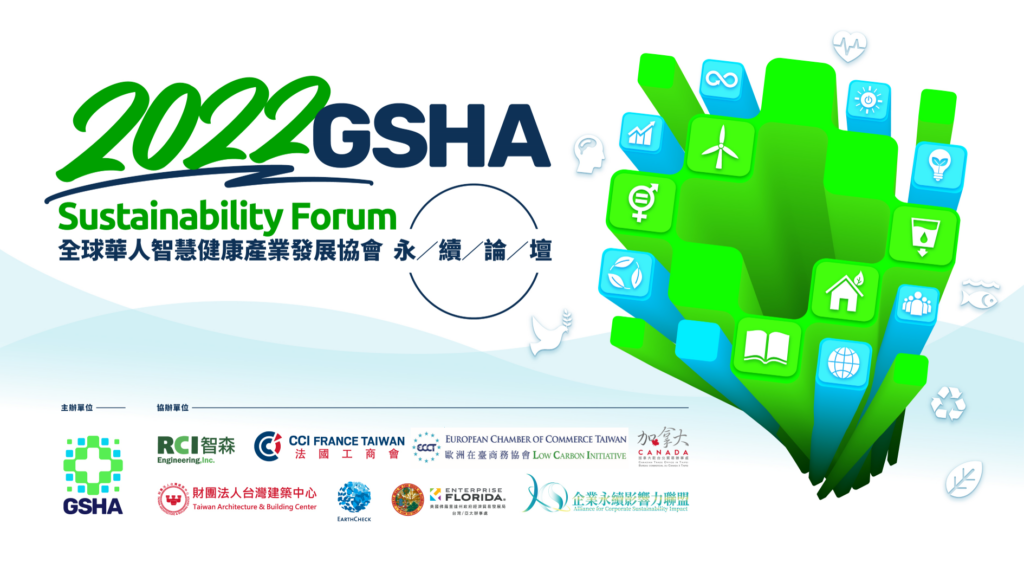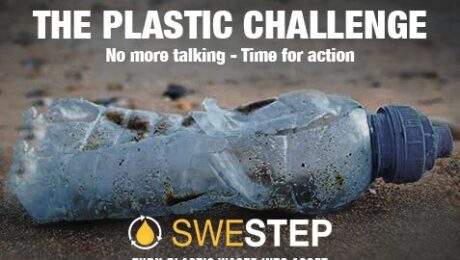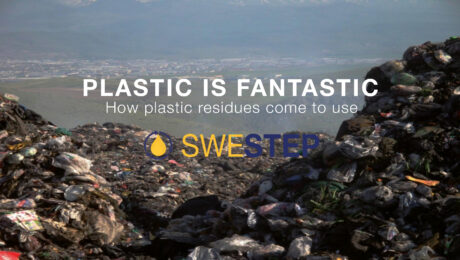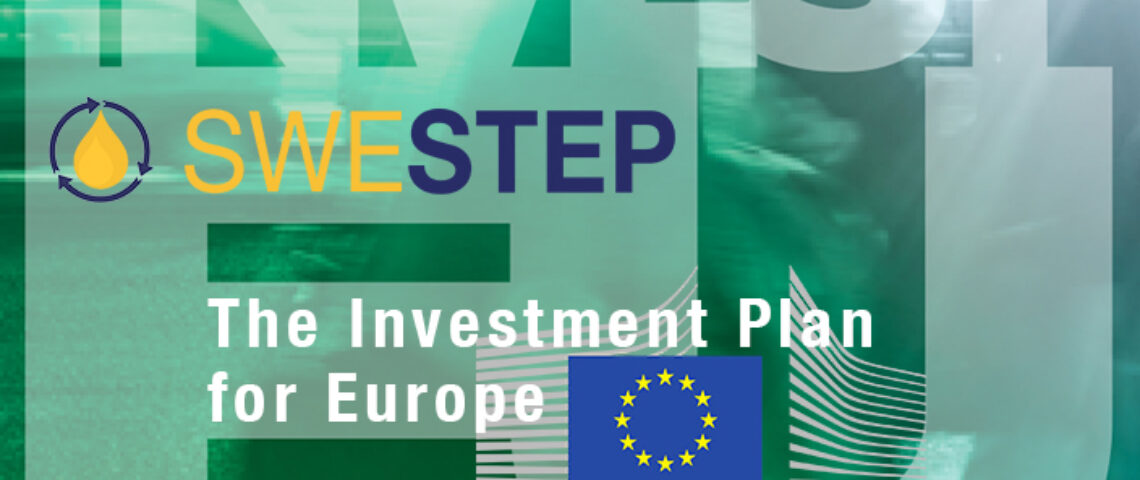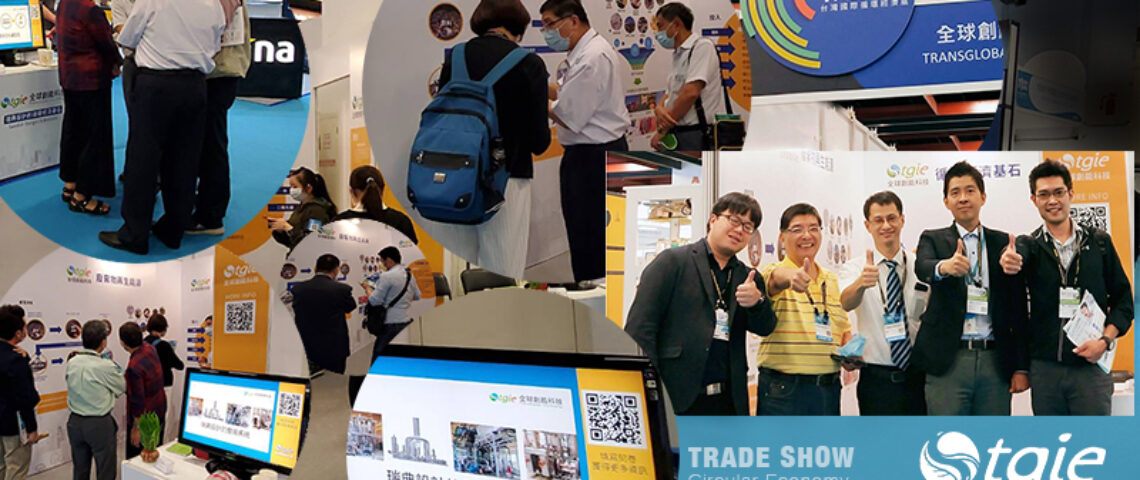SWESTEP will exhibit at PLASTIC NORDIC / MALMÖMÄSSAN: 10-11 MAY 2023 – WELCOME!
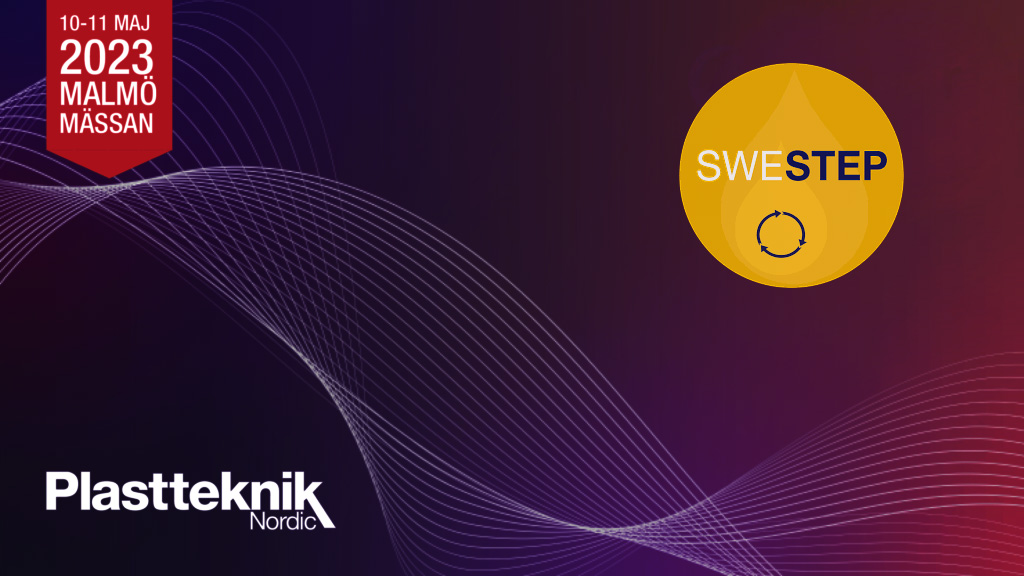
The entire value chain of the Nordic plastic and rubber industry gathers here!
The industry is in constant development and many polymeric materials can now be recycled and contribute to a circular economy.
Plastteknik Nordic is the obvious meeting place for you who work as a designer, develop or manufacture products in polymeric materials. Update yourself on sustainable material solutions for future design, product development and manufacturing. Book your visit to Plastteknik Nordic today!
New technology and new production methods are a crucial part of the future of the plastics and rubber industry.
Welcome!!
Check this link for more information
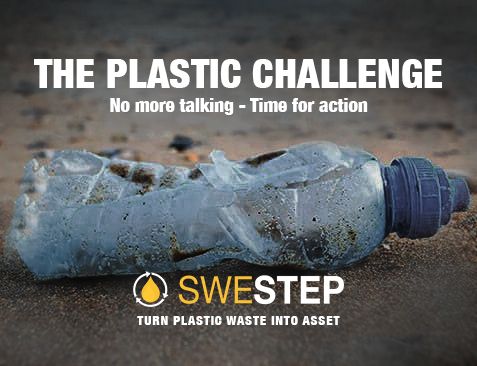
No more Talking – Time for Action
The definition of recycling needs to be expanded and made more inclusive and accessible.
In order for the industry to be motivated to take its recycling responsibility, everything must be simplified in accordance with producer responsibility.
The market needs access to alternatives to mechanical recycling, which is today a priority, as it has its limitations and is both time-consuming and expensive. – And it is neither viable nor sustainable that so much of the waste (especially plastic residues) still ends up in landfills or sent for incineration.
“Feedstock Recycling” must be seen as an important part of the future sustainable solution. It is one of the most profitable and flexible recycling solutions on the market, seen from both input material (feedstock) and end products.
SWESTEP’s CC technology (Catalytic Conversion Process) is a feedstock recycling solution (Also known as molecular recycling or chemical recycling) that offers an efficient solution that enables the circulation of polymeric materials in both an economical and environmentally viable way.
The key difference, matched with today’s dominant cracking technology, is to go from the recycling solution “Plastic to Plastic” to “Plastic to Liquid to Plastic”.
The feedstock containing different quality of plastic material mixed with 30% biomass residue will be converted into a chemical raw material, with properties similar to those obtained from a virgin feedstock, can be refined into circular performance chemicals based on the structure, requirements and properties of the polymer product.
The end product is a chemical raw material, in liquid form, which gives the fossil-dependent industry an important piece of the puzzle/ model to gain control of the circularity from a producer responsibility perspective and also become fossil independent.
Plastic waste and residues can also be used as feedstock for “energy recovery”. Therefore it is important that the market also include “energy recovery” as an environmentally friendly form, in cases where it is used for the production of renewable synthetic fuels. SWESTEP’s patented CC technology can also deliver solutions for both the energy and fuel segment.
Time for change – Time to take the next step
#Swestep – Next Generation Recycling Technology
More about the benefits of SWESTEP
SEE LINK – https://lnkd.in/dE5Br5Mv

MAKE PLASTIC WASTE USEFUL
– Plastic could be Fantastic – If made Circular and Sustainable with clear rules, laws and requirements about where and how it must be recycled –
The industry and decision makers have to rethink how their value plastic and polymeric products and see it as a circular material. The responsibility for producing, handling and recycling, from a product life cycle perspective – must be put on the producer. They are the ones who push prices, margin and pollutes our oceans, water and land.
PLASTIC FEEDSTOCK – Time to give plastic waste a value, price and meaning… See plastic waste and residues as a non fossil feedstock to be recycled into renewable fuels for the transport sector or virgin grade recycled material for the chemical industry to refine into performing chemicals for all fossil dependent industries.
SOLUTION PROVIDER – A SWESTEP Plant can recycle/turn all organic hydrocarbon-based waste and residues, including plastic, into renewable fuels (for Air-Land-Sea) or additives and virgin raw oils to refine into performance chemicals for the petrochemical industry. (New Raw materials that can help fossil dependent industries close the loop for future production of plastic, textile, cosmetic, medicine glue and binding materials)
SWESTEP intends to develop and roll out their technology on an industrial scale as it has the potential to:
• Recycle plastics for which there are limited other viable and effective recycling solutions and technologies today.
• Remove all undesired substances in the process.
• Produce virgin grade oils, sustainable additives and renewable fuels
• Turn biomass and solid waste/residues into valuable feedstock for the chemical industry or fuel for the transport sector.
SOLUTION PROCESS – Through the patented *CC process, plastic waste is broken down to fuels, oil or gaseous liquid products for the chemical industry. These hydrocarbon-based materials (feedstock) could replace todays fossil feedstock and be used to produce new sustainable and circular products, plastic being one segment among others.
THE CC TECHNOLOGY – A SWESTEP Plant – The Next Generation Process Technology for Sustainable Recycling Production.
– No high temperatures creating cancerogen materials and gases
– Low pressure -0.05 bar
– Co2 neutral
– High efficiency
– Great variation on insert material
– Great variation on the end product
– Circular economy
– Co2 Neutral economy
– Strengthens the local and regional independent of oil import
– No greenhouse gases from production
Time to leave the fossil dependence
Time to take the next step
SWESTEP
*CC = Catalytic Conversion Process


